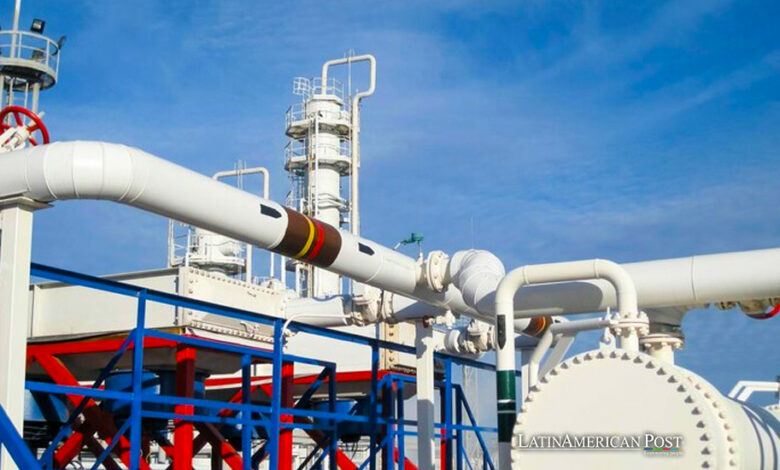
Suriname, Guyana moving towards joint exploitation of gas reserves
Guyana and Suriname running after cooperative gas resource utilization.
ANALYSIS:
Guyana and Suriname, two neighboring countries in South America, are increasingly focusing on cooperative gas resource utilization to bolster their economies and enhance energy security. This collaboration is particularly relevant given the significant oil and gas discoveries in the Guyanese offshore, which have positioned the country as a burgeoning player in the global energy market. Suriname, while still developing its hydrocarbon sector, has also identified the potential of its own gas reserves, making cooperation an attractive option.
BREAK-DOWN:
The strategic partnership between the two nations is rooted in their shared geographic and economic interests. Guyana’s offshore oil fields, primarily operated by ExxonMobil, have yielded substantial natural gas as a byproduct. Suriname, on the other hand, has its own untapped resources, including offshore gas deposits. By collaborating, both countries can optimize the utilization of these resources, ensuring a more efficient and sustainable energy sector.
One of the primary motivations for this partnership is the development of a regional gas pipeline. Such infrastructure would allow for the transportation of natural gas from Guyana to Suriname, facilitating energy supply to both domestic markets and potential export opportunities. This pipeline could significantly reduce energy costs, enhance reliability, and support industrial growth in both nations. Moreover, it aligns with broader regional initiatives to foster energy integration in South America, contributing to energy security across borders.
Additionally, cooperative efforts in gas resource utilization can drive investment and technological advancements. By pooling resources and expertise, Guyana and Suriname can attract foreign direct investment, which is essential for the exploration and development of gas reserves. Joint ventures between state-owned and private companies could accelerate the discovery and commercialization of gas fields, ensuring that both countries benefit from their natural resources.
The environmental considerations associated with gas production and utilization cannot be overlooked. Both countries are grappling with the challenge of balancing economic development with environmental sustainability. Cooperation allows for the sharing of best practices in responsible resource management, ensuring that both nations adhere to international environmental standards. Collaborative approaches to environmental assessments and mitigation strategies can help minimize the ecological impact of gas extraction and transportation.

Moreover, the cooperative framework provides an opportunity for both countries to engage with regional organizations and international partners. This can lead to knowledge sharing, capacity building, and enhanced political support for energy initiatives. As global demand for cleaner energy sources continues to rise, both Guyana and Suriname stand to benefit from positioning themselves as responsible producers of natural gas, appealing to environmentally-conscious investors and markets.
In conclusion, the cooperative approach to gas resource utilization between Guyana and Suriname holds significant promise for both nations. By leveraging their respective strengths, they can enhance energy security, drive economic growth, and promote sustainable development. The establishment of a regional gas pipeline and collaborative investment strategies can lead to a more integrated energy landscape, benefiting not just the two countries but the broader South American region as well. As they navigate the complexities of the energy sector, a unified approach will be crucial in harnessing the full potential of their gas resources for future generations.
Leave a Reply